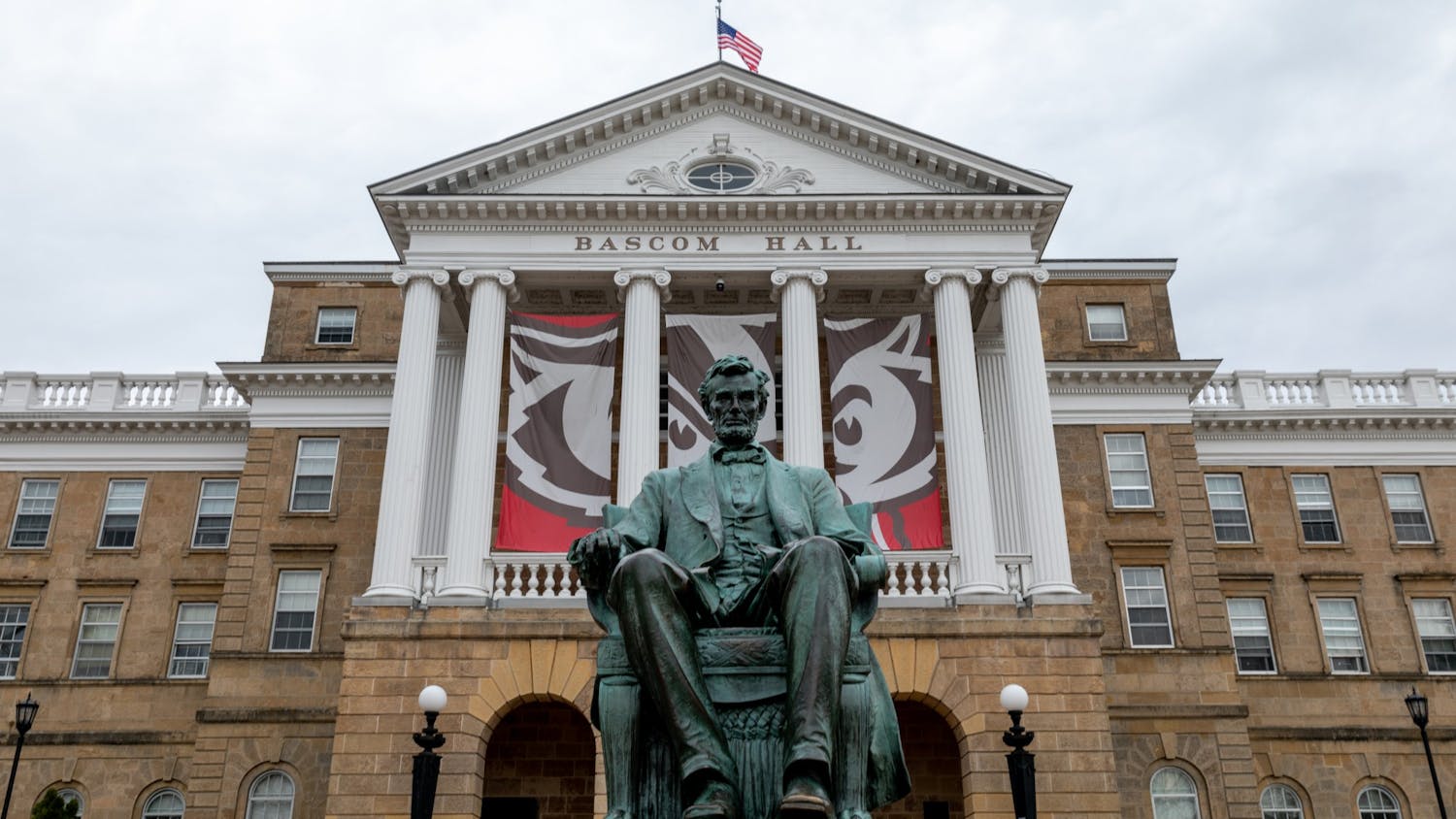Do you remember the day you got your financial aid award?
Compared with the level of anticipation that college admissions letters get, this seems like a ridiculous question. But for some students, they remember both as days that were life changing.
“I remember getting the email and thinking it was a scam because it sounded too good to be true. When I realized it was true I called my parents crying,” said Carissa Goddeau, a sophomore in UW-Madison’s FASTrack program. She isn’t alone — thinking the program was a scam was a common reaction among the group of FASTrack students that The Daily Cardinal interviewed.
According to the Office of Student Financial Aid, FASTrack is “designed to assist Badgers from low-income households pay for college through a combination of grants, work-study, and small loans.”
In order to be eligible, a student must meet one of three criteria: they must be eligible for a Pell Grant and a first-generation college student, eligible for a Pell Grant and with a score of at least 30 on the ACT, or be a recipient of public assistance programs. BANNER is the out of state version of the same program, though it has slightly different eligibility requirements.
Goddeau’s words were echoed by Joselyn Diaz-Valdes, a Senior Advisor in the Office of Student Financial Aid. “You hear the saying ‘if it sounds too good to be true, it probably is,’ and this is the one time where it sounds too good to be true but it’s real,” she said.
While financial aid is an excellent way to attract students to campus, it cannot be expected to solve all of the problems associated with financial insecurity. There can also be issues with the gaps in financial aid for programs like Bucky’s Tuition Promise, which, as the name implies, only covers tuition and segregated fees. Cecelia McDermott, a freshman and recipient of Bucky’s Tuition Promise, noted that paying for books was a source of difficulty despite being in the program.
“I didn't realize how big of an expense that was going to be. One of my classes has six or seven books and you need a certain edition, so you can't just get the cheapest copy,” McDermott said. Some professors also require the print edition rather than allowing students to use e-books, which can also raise students’ expenses.
Some students said programs like FASTrack have helped them become more involved on campus because they don’t have to worry about working to pay off loans, though all FASTrack students are encouraged to accept a work-study offer and have a part-time job on campus.
Others, like McDermott, said that it can be difficult to weigh the benefits of going out to eat to make friends against saving money and eating at home. The choice to go out or stay in may seem small to some, but can have a large impact on a first-year student who is trying to make friends on campus.
Diaz-Valdes spoke several times about the importance of a community for low-income and first generation college students on campus, but also remarked the creation of such a space has been difficult. She has spent nine years with the Office of Student Financial Aid, and is the liaison to several programs: the Center for Educational Opportunity, First Wave, and UW’s student veteran program. She also serves as a member of the Satisfactory Academic Progress Committee, but said that the majority of her time is spent working with FASTrack/BANNER students. “I feel like every single change we made, it took a long time for folks to get on board with,” she said, regarding the evolution of the FASTrack and BANNER programs.
When she first began working with the program, accepted students would receive a four-page letter in the mail. They would then be invited to schedule a one-on-one appointment with a financial aid advisor, which Diaz-Valdes said resulted in about a 50 percent contact rate. She continued to push for the program to do more, working diligently and each time waiting a few months before making another suggestion. Finally, the FASTrack/BANNER program added a short orientation program where all students would gather to meet their peers, as well as the financial aid staff. Although Diaz-Valdes remembered with a laugh that the first orientation program was scheduled during a Packers game, a mistake she swore never to make again, she said that they had contact with about 80 percent of students in the program at the event.
Other changes have also been made. Instead of mailing students a long letter, they now receive an email with the most pertinent details of their aid award. The FASTrack website has been reworked in the past year. Previously, it was difficult to find any mention of program criteria on the Office of Student Financial Aid website. Students now have access to a variety of frequently asked questions, and the ways students can qualify are clearly listed on the page.
To some, these may seem like insignificant changes, but students in the program say otherwise. “My first reaction was, ‘Why am I getting this? Is it because I’m smart or because I’m poor? And It’s actually a combination of both,” said Valerie Kelly, a sophomore in the FASTrack program. Many students noted the importance of knowing there was a merit element within the financial aid programs. The goal behind extensive aid packages is to decrease the “sticker price” of UW so students from diverse socioeconomic backgrounds are encouraged to apply, but feeling like they earned the money they had been given was also important to students The Daily Cardinal interviewed. The idea of merit is highly regarded by these students because it helps them recognize that their ability to attend UW-Madison is the result of their academic success, not strictly their economic background.
“Most people that are in the socioeconomic status where they would qualify for programs like FASTrack or Bucky’s Tuition Promise have outside things that people who are of the higher socioeconomic status don’t have to deal with,” said Kyla Vaughn, a freshman in the FASTrack program. She explained that while her financial aid package covers most of her school-related expenses, she still has to work 30-40 hours each week in order to help her parents pay bills. Financial aid helps students get to campus — but it cannot erase the extenuating circumstances that many low-income students have to manage in addition to pursuing their degree.
Some students also mentioned the lack of public knowledge about the financial aid programs. None of the students interviewed had heard of FASTrack or BANNER before they were notified that they qualified for the program. In some ways, the “secretiveness” of the program is understandable. FASTrack and BANNER go well beyond paying tuition — students are also given funding for housing, food, books, and other expenses. That makes the price tag per student quite high, and as a result, not many are accepted into the program. According to the Office of the Provost, there were 264 students in the FASTrack program and 66 in the BANNER program in 2017.
Though we have offered some areas where financial aid programs are lacking, such as the absence of surrounding publicity and gaps in funding, many of the students interviewed for this piece expressed a strong desire not to be associated with any negative quotes regarding institutional aid programs. It is completely understandable that a student who depends on UW-Madison to fund the education that their future rests on would not want to do anything to put their aid in jeopardy, but that attitude is also an indicator of a larger problem.
There is a prevailing notion that since these students have been provided with such incredible financial aid, they have no “right to complain.” The notion that some students should keep their head down in fear of having their financial aid taken away is wrong. No student at UW should be afraid of offering their opinion, especially when they want to improve a part of our campus. Low-income students should not feel like they have to settle for what they have been given strictly because they faced challenges to get here. Instead, the UW-Madison community must do more to reaffirm that the perspectives of these students are valid, especially when it pertains to the systems that affect them.
Additionally, the fact that many of the students remembered thinking their financial aid offer was a scam — that an offer that good could never be true — means there is work to be done to inform students in all areas of Wisconsin, from inner cities to small towns, that a UW education is possible for everyone.
The price of financial aid programs create a dilemma: The largest segment of funding for these programs comes from institutional aid, and the more students accepted into the program, the higher the cost to UW-Madison. But by increasing public knowledge of these financial aid programs more, UW-Madison would increase the amount of low-income applicants to the school, and could use that as a motivator to increase funding to the programs.
Without doubt, there is an across-the-board need for support of students in financial aid and scholarship programs. When Joselyn Diaz-Valdes started working for the Office of Student Financial Aid, there were several other full-time advisors. Now, she is the only one left specifically for FASTrack/BANNER. Creating a community of FASTrack, BANNER, and Bucky’s Tuition Promise students is a tall order, and one that would be difficult for anyone to accomplish on their own.
In an op-ed for the Hudson Star-Observer, Chancellor Rebecca Blank wrote, “We don't want even one Wisconsin high school student to automatically rule us out for financial reasons. Our goal is to ensure that anyone who is admitted can afford to be a Badger.” UW-Madison has made great strides in this regard, but the creation of more support networks are necessary to ensure that low-income students are afforded an equal opportunity to thrive on campus personally, socially, and academically.
Cardinal View editorials represent The Daily Cardinal’s organizational opinion. Each editorial is crafted independent of news coverage. What are your thoughts on UW-Madison's financial aid programs? Send all comments to opinion@dailycardinal.com.






